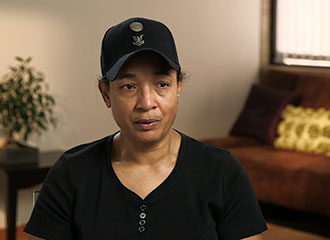What to Do After the Military?
4-minute read
What to Do After the Military?
4-minute read
What’s the next step after life in the military? How do skills from your service translate to qualifications for a new career? These are very common questions among Veterans after transitioning or retiring from the military.
Regardless of what stage of life you’re in — whether you go straight into retirement after your service or enter the civilian workforce — figuring out what to do next can be challenging. Check out the tips below on how to handle what life throws your way — and hear from other Veterans who have successfully transitioned to life after the military.
Resources for Life After the Military
As a Veteran, you bring valuable skills to the workplace, but you may also face challenges when it comes to finding employment or doing your job. Despite your capabilities and the drive you gained from military service, it can be tough figuring out how those best translate to a civilian job.
“The skills that you bring out of the military — the leadership skills, the organizational skills, the commitment, the work ethic — [are] highly valuable in civilian life,” says Darren, a U.S. Army Veteran. “But you have to also realize that civilian life is not military life.”
Here are a few good starting points for what to do when looking for a new career:
- Get one-on-one assistance. The Veterans’ Employment and Career Transition Advisor provides job-search tools and one-on-one-assistance for Veterans and returning Servicemembers.
- Find government jobs. FedsHireVets supports Veterans with resources for finding employment with the U.S. government.
- Be mindful of what to look out for. Learn about work-related challenges that Veterans may experience and what you can do to avoid them or get beyond them.
Starting a career can be exciting — but new opportunities can be difficult, too.
“I worked with civilians for the first time, and that was challenging,” says Jamie, a U.S. Marine Corps Veteran and reservist. “There were days that I didn’t feel I had job satisfaction because I had been out there supporting Marines. I was in this unique job with great opportunities, but it just didn’t feel as fulfilling as it used to be.”
Take advantage of the resources above and hear other Veteran success stories.
Making the Most of Retirement
Retirement can be a rewarding stage in your life. Your days free up for new hobbies or activities and more time to spend with family and friends. But it can also bring uncertainty.
“For maybe 30 years I was always told what to do and I was fine with that,” says Ed, a U.S. Army Veteran who served in Vietnam. “But once I retired, it just all changed. At one point I said, ‘I need to see somebody.’”
Here are a few tips that can help you get the most out of life after you retire:
- Make healthy habits. As you get older, find healthy ways to cope with challenges related to retirement.
- Achieve your financial goals. VA’s Retirement and Financial Literacy Education Program can help you reach financial security.
- Learn about your VA benefits. Find information on applying for retirement benefits, disability compensation, health care for retirees, and more.
- Keep your mind active. Devote time to causes and people you care about, be curious, and learn new things.
For Veterans who have difficulty adjusting to retirement, connecting with counseling and therapy can ease the transition.
“Although you’re retired, go to the VA; get your treatment,” says Keith, a former Navy corpsman and Marine Corps Veteran. “But also share your experiences with those that need it as well.”
Find more resources for transitioning from service.


